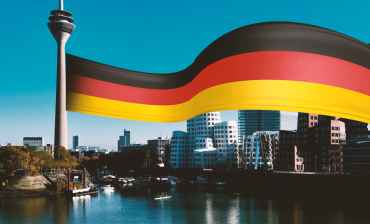Germany, located in the heart of Europe, is a country with a rich history, diverse culture, and vibrant cities. From the bustling streets of Berlin to the picturesque towns of Bavaria, Germany has something to offer for every type of traveler. In this article, we will explore some of the most cultural hubs and historical cities in Germany, revealing the unique charm and character of each destination.
Berlin – The Capital of Culture
Berlin, the capital city of Germany, is a bustling metropolis with a rich cultural scene. The city is home to over 170 museums, galleries, and cultural institutions, making it one of the largest cultural centers in Europe. The Museum Island, a UNESCO World Heritage Site, is a must-visit attraction, featuring five of the city’s most important museums, including the Alte Nationalgalerie, the Altes Museum, the Bode Museum, the Neues Museum, and the Pergamon Museum.
Berlin is also known for its vibrant nightlife, with a wide range of bars, clubs, and live music venues. The city’s arts scene is also thriving, with numerous galleries and art spaces showcasing the works of local and international artists.
Munich – The Birthplace of Oktoberfest
Munich, the capital of Bavaria, is a city steeped in history and culture. The city is home to numerous museums, including the Deutsches Museum, which is one of the largest science and technology museums in the world, and the Bayerisches Nationalmuseum, which showcases the cultural and artistic heritage of Bavaria.
Munich is also famous for its Oktoberfest, a world-famous beer festival that attracts millions of visitors each year. The festival features traditional German music, food, and of course, plenty of beer. Visitors can sample local delicacies such as sausages, sauerkraut, and apple strudel, and enjoy the lively atmosphere of the festival.
Cologne – The City of Art and Architecture
Cologne, located in the western part of Germany, is a city known for its stunning architecture, vibrant arts scene, and rich cultural heritage. The city is home to numerous museums, including the Wallraf-Richartz Museum, which is one of the oldest and most important art museums in Germany, and the Ludwig Museum, which features a collection of modern and contemporary art.
Cologne is also famous for its beautiful cathedral, the Kölner Dom, which is a UNESCO World Heritage Site and one of the most visited landmarks in Germany. The city’s old town is also worth exploring, with its narrow streets, charming squares, and historic buildings.
Hamburg – The Gateway to the World
Hamburg, located in the north of Germany, is a bustling port city with a rich maritime history. The city is home to numerous museums, including the Hamburg Museum, which showcases the city’s history and culture, and the St. Annen Museum, which features a collection of medieval and early modern art.
Hamburg is also known for its vibrant nightlife, with a wide range of bars, clubs, and live music venues. The city’s Reeperbahn district is famous for its red-light district, but it also features a variety of theaters, restaurants, and shops.
Frankfurt – The Financial Hub
Frankfurt, located in the western part of Germany, is a city known for its financial district and international airport. However, the city also has a rich cultural scene, with numerous museums, galleries, and historical landmarks. The Museumsufer, or Museum Riverbank, is a must-visit attraction, featuring a collection of museums, including the Museum for Modern Art, the Museum of Applied Arts, and the German Film Museum.
Frankfurt is also home to the Römerberg, a historic square that features some of the city’s most important landmarks, including the Frankfurt Cathedral and the Old Town Hall. The city’s old town is also worth exploring, with its narrow streets, charming squares, and historic buildings.
In conclusion, the cultural hubs and historical cities of Germany offer a diverse and vibrant experience for visitors. From the bustling streets of Berlin to the picturesque towns of Bavaria, each destination has its own unique charm and character.
Berlin, the capital city, is a must-visit destination for anyone interested in history, culture, and nightlife. The city’s museums, galleries, and cultural institutions are some of the best in Europe, and the vibrant arts scene is not to be missed.
Munich, the birthplace of Oktoberfest, is a city that perfectly blends tradition and modernity. Visitors can enjoy the city’s famous beer festival, explore the historic center, and visit some of the world-class museums.
Cologne, located in the western part of Germany, is a city that is steeped in history and culture. The city’s cathedral, the Kölner Dom, is a must-see attraction, and the vibrant arts scene is not to be missed.
Hamburg, the gateway to the world, is a bustling port city with a rich maritime history. Visitors can explore the city’s museums, take in the vibrant nightlife, and enjoy the diverse culinary scene.
Frankfurt, located in the western part of Germany, is a city that is known for its financial district and international airport. However, the city also has a rich cultural scene, with numerous museums, galleries, and historical landmarks.
Author: Pooyan Ghamari, Swiss Economist & Visionary







